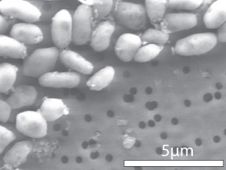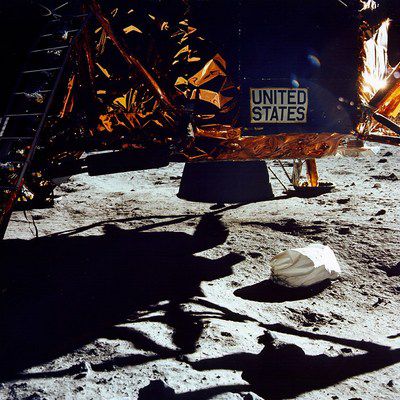 NASA didn’t announce the discovery of extra terrestrial life today. Would it be exciting to you, though, if I told you it discovered a way that might allow wastewater treatment plants to operate without phosphorous? Or, to put it in terms of the NASA news release:
NASA didn’t announce the discovery of extra terrestrial life today. Would it be exciting to you, though, if I told you it discovered a way that might allow wastewater treatment plants to operate without phosphorous? Or, to put it in terms of the NASA news release:
NASA-funded astrobiology research has changed the fundamental knowledge about what comprises all known life on Earth.
NASA discovered an organism that’s figured out how to do without phosphorous. Phosphorous is necessary for life — at least the kind of life with which we’re most familiar. The “green revolution,” for example, was fueled by phosphorous, reserves of which are declining rapidly on earth because of fertilizer. It’s also the chemical backbone of our DNA.
Now, an organism has been discovered that apparently doesn’t need phosphorous, it uses arsenic to build itself.
We know that some microbes can breathe arsenic, but what we’ve found is a microbe doing something new — building parts of itself out of arsenic,” said Felisa Wolfe-Simon, a NASA Astrobiology Research Fellow in residence at the U.S. Geological Survey in Menlo Park, Calif., and the research team’s lead scientist. “If something here on Earth can do something so unexpected, what else can life do that we haven’t seen yet?”
Pamela Conrad of NASA called the discovery “delightful” because it expands her thinking of what life beyond Earth might look like. “It opens up a whole new line of chemistry. The implication is we still don’t know everything there is to know about what might make a habitable environment on another planet.”
Will this answer questions about how we got here and are we alone? “Probably not in our lifetime,” Wolfe-Simon said. But without the discovery, earthlings looking for life on another planet could go to all the trouble of getting somewhere, only to not recognize life that exists there as life at all.
For example, was there life in this picture, but we didn’t know it?
Here on earth, another scientist said, the discovery could lead to a creation of bioenergy organisms without needing to deplete the phosphorous supply on Earth.
One excited scientist said today the discovery should inspire more U.S. students to study science.
That would be a new form of life, too.
By the way, ever wonder what gets a roomful of science reporters excited while they’re covering a news conference at which new forms of life are revealed ? Seeing themselves on a monitor:


